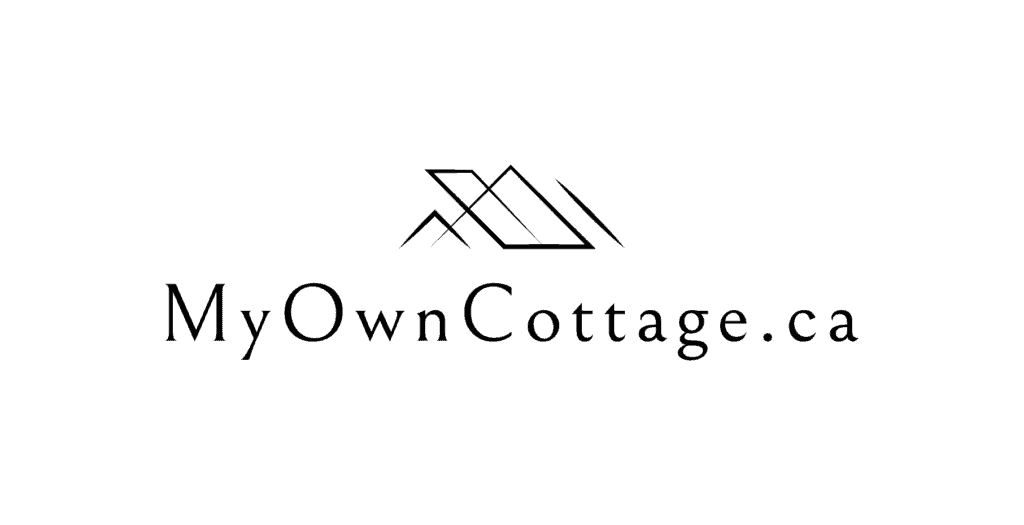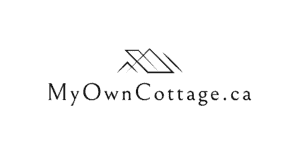Financing for Prefab Modular Homes in Ontario: Options, Programs & Tips
Last updated: September 4th, 2025
Prefab modular homes in Ontario are quickly becoming one of the province’s most popular housing solutions. Homebuyers love them for their lower costs, faster timelines, and strong energy efficiency.
But there’s one big question: How do you finance a prefab home in Ontario? Understanding your options is the key to turning your modular home project into reality.
How Prefab Home Financing Differs from Traditional Mortgages
Financing a prefab modular home in Ontario works differently from a conventional mortgage. Buyers often explore construction loans, specialized lenders, or government-backed programs tailored to modular housing.
Financing rules also vary depending on the type of build. Learn more about the difference between prefab and modular homes in Ontario to understand how lenders evaluate each.
This guide covers the main financing routes, available rebates, smart budgeting strategies, and expert tips—so you can choose the best path to prefab home ownership.
Understanding Prefab Modular Home Financing in Ontario
Financing prefab modular homes vs. traditional homes in Ontario comes with a few key differences:
Construction loan for prefab modular homes. Unlike a typical mortgage, many buyers start with a short-term construction loan that funds the build and then converts into a prefab modular home mortgage in Ontario once the home is complete.
Mortgage approval requirements. Some lenders treat prefab homes as non-traditional housing and may apply stricter modular home loan requirements in Ontario. Working with credit unions or the best banks for prefab modular home loans in Ontario can improve approval odds.
Prefab home down payment in Ontario. Down payments typically range from 5%–20%, depending on lender policies, credit score, and whether your mortgage qualifies for CMHC prefab modular home insurance.
If you’re asking, “Can you get a mortgage for a prefab home in Ontario?” the answer is yes—though the path can differ from a standard home purchase.
Mortgage Options for Prefab Modular Homes
Conventional Mortgage Loans
Many buyers can qualify for a conventional mortgage—provided the home meets CSA (Canadian Standards Association) standards and is permanently installed on a foundation.
Lenders typically require:
Proof of land ownership (showing you own the lot).
Building permits (confirming compliance with local Ontario zoning and construction rules).
A signed construction contract with a certified prefab modular home builder.
Meeting these conditions makes it easier to secure a modular home loan in Ontario through a major bank, credit union, or specialized lender.
Construction-to-Permanent Loans
A construction loan for a prefab modular home in Ontario lets you draw funds during the build, then automatically convert the balance into a standard mortgage once the home is complete.
This is ideal for projects with staged builder payments (foundation, delivery, installation, finishing).
Because prefab projects are completed faster, borrowers often pay less in interim interest. See how prefab modular homes are faster to build than traditional homes and why that matters for financing.
Customer Story:
A Toronto family used a construction-to-permanent loan for their modular home.
During the build, funds were advanced in stages as the home was delivered, assembled, and installed.
At completion, the loan transitioned into a long-term modular home mortgage in Ontario, creating a smooth path from construction to ownership.
Credit Union and Specialty Lender Programs
Not all banks in Ontario are equally friendly to prefab modular home mortgages. Some remain cautious, which can affect approvals.
That’s why many buyers look to credit union prefab modular home financing or specialty lenders experienced with modular timelines.
These providers often offer competitive rates and products designed for staged payments.
Government Incentives and Rebates in Ontario
CMHC Programs for Modular Housing
The CMHC prefab modular home mortgage program offers mortgage loan insurance, helping qualified buyers secure financing with smaller down payments.
This reduces lender risk and can improve affordability.
Ontario Green Energy Rebates
Many prefab modular homes in Ontario qualify for energy-efficient rebates—especially when built to Net Zero or ENERGY STAR® standards.
Programs such as the Canada Greener Homes Grant can reimburse upgrades like solar, enhanced insulation, high-performance windows, and more—lowering upfront costs and utility bills.
First-Time Home Buyer Incentives
If this is your first prefab modular home in Ontario, you may be eligible for:
Land Transfer Tax Rebate (refunds a portion of land transfer tax).
First-Time Home Buyer Incentive (a shared-equity program that can reduce monthly payments).
HST New Housing Rebate (a rebate on the federal portion of HST for qualifying new homes, including prefab).
These programs can meaningfully reduce upfront costs.
Budgeting and Cost Considerations
Typical Price Range
The average cost of a prefab modular home in Ontario typically ranges from $150–$300 per sq. ft., depending on design complexity, customization, finishes, and location.
Layout complexity also affects total loan amounts. Explore the most popular prefab modular home designs in Ontario to see how financing aligns with different floor plans.
Hidden Costs
Beyond the base prefab modular home cost in Ontario, budget for:
Land preparation (grading, excavation, foundation).
Permits and inspections (municipal requirements before and during construction).
Transportation (delivery of modular sections from factory to site).
These hidden costs of prefab modular homes in Ontario add up quickly—include them in your financing plan.
Upgrades like garages, decks, or energy-efficient systems may require additional financing. Learn how prefab modular homes can be customized in Ontario and what that means for your budget.
How Financing Affects Total Cost
Perform thorough financial due diligence.
Review interest rates, loan terms, down payment requirements, and insurance.
Understanding these inputs helps clarify your total investment and long-term affordability.
Tips for Securing Financing Successfully
Improve Credit Score & Documentation
Financing is one of the first milestones in the home-buying journey. Review the steps involved in buying a prefab modular home in Ontario to see how budgeting fits into the process.
A stronger credit score can unlock better rates with the best banks for prefab modular home loans in Ontario.
Prepare:
Past two years of tax returns
Proof of income (pay stubs, employment letter, or self-employment statements)
Signed building contracts with your certified prefab modular home builder
Being organized streamlines approvals and boosts your chances of securing the best prefab modular home mortgage in Ontario.
Work with Modular-Experienced Lenders
Ask every potential lender: “Have you financed prefab modular homes before?”
Experienced lenders help you avoid delays and offer terms tailored to modular construction schedules.
Partner with Builders Who Offer Financing Guidance
Many prefab modular home builders in Ontario partner with lenders to offer pre-approved financing packages.
For example, My Own Cottage works with trusted financing partners to help clients secure approvals early—smoothing the construction-to-mortgage transition and reducing delays.
Many buyers also plan ahead for financing future add-ons. Discover whether prefab modular homes can be expanded or upgraded after installation and how lenders handle those costs.
Your Path to Prefab Home Ownership
Prefab modular homes in Ontario are now more affordable, customizable, and sustainable than ever.
From construction loans to Ontario prefab home incentives, buyers have multiple pathways.
Plan ahead, choose lenders experienced with modular builds, and leverage rebates and incentives.
Financing your prefab home becomes not just achievable—but a smart, strategic step toward long-term affordability.
Ready to get started?
Simply book a free consultation, call us directly, or view our design catalogue today.
🧑💼 Request a Free Consultation
📲 Call Us Directly: (705) 345-9337
🏘️ View Our Design Catalogue
✅ Ontario-Built | ⚡ Energy-Efficient | 🏡 Fully Customizable | 🚚 Fast Delivery
Alternatively, for your convenience, you can also simply fill out the contact form below and we’ll get back to you soon! 👇
FAQ: About Financing for Prefab Modular Homes in Ontario
What financing options are available for prefab modular homes in Ontario?
Financing includes traditional mortgages (for homes on permanent foundations and owned land), construction loans (disbursed during build, converting to mortgages), chattel mortgages (for homes on leased land), in-house financing from manufacturers, and personal loans for smaller units.
Can you get a traditional mortgage for a prefab modular home in Ontario?
Yes—as long as the home is CSA/IBC-certified (e.g., CSA A‑277), installed on a permanent foundation, and placed on owned land, lenders often treat it like a site‑built home.
How do construction loans work for prefab modular homes?
Construction loans fund staggered phases—like site prep and installation—then convert to standard mortgages once construction is complete and approved.
What is a chattel mortgage for prefab homes on leased land?
A chattel mortgage treats the home itself (not the land) as collateral. It’s common when the unit sits on leased land, featuring higher interest rates and shorter-term amortization compared to traditional mortgages.
Do prefab home builders in Ontario offer in-house financing?
Yes. Some manufacturers (like My Own Cottage) provide in‑house financing or lender partnerships, which can offer competitive rates—though buyers should compare terms with traditional lenders.
Can personal loans finance prefab modular homes?
Yes—for smaller structures like accessory dwelling units (ADUs) or land prep costs, a personal loan may suffice, though typically at higher interest rates.
What factors affect financing eligibility for prefab homes?
Critical factors include:
Use of a permanent foundation
Ownership of land versus lease
Compliance with building codes and statutory warranties
Lease duration longer than loan term (if leased land)
Where can I find prefab modular home financing in Ontario?
Finance options are available from:
Major banks and credit unions (for traditional mortgages)
Specialized prefab lenders and mortgage brokers familiar with modular homes
CMHC-insured loans for qualified builds with potentially lower down-payment requirements
Are prefab modular homes harder to finance than traditional sites-built homes?
Not necessarily. If the home meets certifications, is permanently installed on owned land, and meets regional codes, most lenders will finance it similarly to traditional homes. Financing challenges mainly arise for movable units on leased land.
How do government incentives impact financing for prefab modular homes in Ontario?
Programs like CMHC-insured loans reduce down-payment needs for eligible prefab homes. Provincial initiatives—such as green energy rebates, first-time homebuyer incentives, and Ontario housing rebate programs—can further lower costs.
How can Ontario buyers finance prefab modular homes?
Ontario buyers can finance prefab modular homes using traditional mortgages, construction loans, chattel financing, in-house builder credit, or personal loans. Eligibility hinges on home certification, land ownership, building code compliance, and installment structure.
Do any builders help with financing prefab modular homes in Ontario?
Yes. Some builders provide financing guidance or partnerships with lenders. For example, My Own Cottage offers assistance through its trusted affiliates and partners, helping buyers connect with financing options tailored to prefab modular homes in Ontario.
🛡️ Verified Third-Party Resources
For added confidence and transparency, here are trusted external sources that support modular homebuilding in Ontario:
Ontario Building Code (O. Reg. 332/12)
Official provincial regulations that govern modular and factory-built homes.Tarion Warranty Corporation
Provides home warranty coverage and builder licensing in Ontario.Canadian Home Builders’ Association (CHBA)
National organization supporting residential construction, modular certification, and best practices.CMHC – Canada Mortgage and Housing Corporation
Federal housing authority offering insights on modular housing affordability, financing, and energy efficiency.Statistics Canada: Housing Data
Data-driven research on Canadian housing trends, ownership, affordability, and construction.


